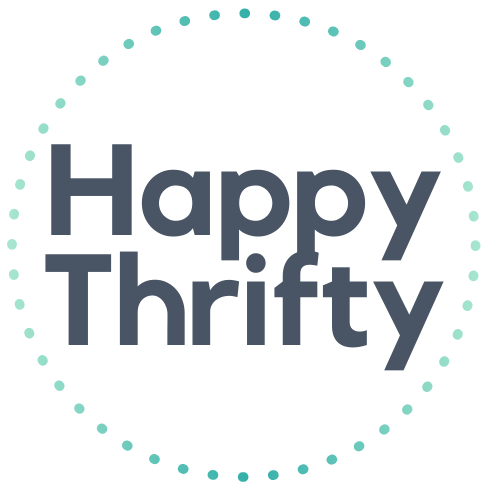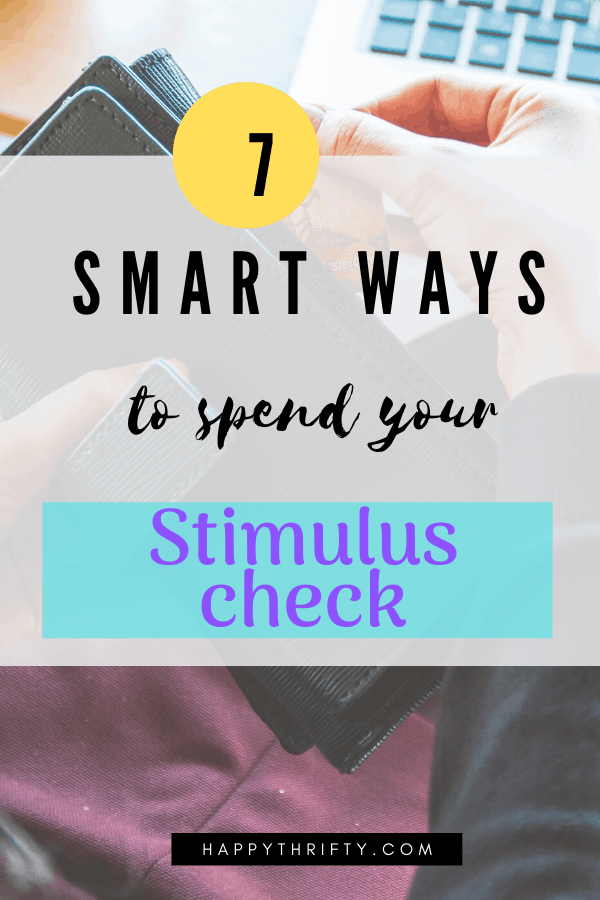The government has spent $2 trillion to stimulate the economy by providing consumers with some spending money, a.k.a stimulus check. Individuals with an adjusted gross income of up to $75k are expected to receive $1200.
If you have not gotten your stimulus check yet – you can check on the IRS site.
I received my stimulus check yesterday, and I am so happy that finally, I was able to get some support from the government after paying all the taxes for so many years!
Instead of spending it on some shiny materialistic new purchases, here are smart ways to put your stimulus check in good use.
Use it for your living expenses
If you currently don’t have enough money to cover your living expenses, please use the money to pay your rent and put food on the table. This is what the checks are intended to use for anyway.
Use it to build your emergency funds
A good rule of thumb is we should have enough cash to cover our living expenses in the next 6 months (12 months if you’d like to be more conservative). Save this money to your bank account so that it increases your asset.
Paying your student loan and/or credit card debt
Since credit card debt usually has higher interest rates than student loans, it would make more sense to pay off your credit card debt first.
If you have knocked out your credit card debt, you can apply the payment towards getting rid of your student loans.
The federal government is extending financial relief to student loan borrowers. The federal loan is interest-free until Sept 30 of 2020, which means all the payments you made will go through straight to the principal balance.
Zero-interest combining with the stimulus check can boost your progress to pay off your student loan.
Investing the money
If you are lucky enough to have your living expenses and emergency covered and also no problem with debt, that’s great! I would suggest opening a Roth IRA account and buy some index funds or target-date funds. This is a great starting point to build your asset.
Roth IRA is a retirement account that offers tax-free growth and tax-free withdrawal. With 401k, we still have to pay taxes when withdrawing the money, but that’s not the case with Roth IRA.
Unlike opening a personal investment account, the capital gain is tax-free. Luckily, the deadline for contribution 2019 has been extended to July 15th, 2020.
I would recommend opening an account with Vanguard, Fidelity, or Charles Schwab. Vanguard is very popular amongst investors, however, lots of funds require minimum investment accounts. If you have a minimum required balance (varies between $1000-$3000), I would go with Vanguard – but if you don’t, Fidelity and Charles Schwab are also a great option.
Target date funds essentially contain funds of funds and it will automatically pick an asset allocation for you based on your age.
Target date funds can be a good starting point because they are easy to set up and low cost. The key aspects of being successful at investing are starting early, picking asset allocation, and sticking with it for the long term.
To figure out how long it will take to double your money, divide the number 72 by the return rate you are getting, and you’ll have the number of years you must invest in to double your money.
Another great option is to increase your 401k contribution. Both are great choices – however, if you consider achieving FI soon, maxing out your 401k might be a better choice since you will save more on taxes.
Open high yield online savings account
If you are still hesitant about the investment account – that’s understandable. I was very hesitant too at first. I started with opening a high-yield online savings account before opening my investment account.
Online-only banks offer higher interest rates because they don’t have the expense of maintaining branches.
This is a great and safe option to park your money short term, and you will have access to the cash anytime. If you need to withdraw the cash, you can transfer it to another external bank account.
I am a fan of Discover Bank and currently, they offer 1.5% APY. If you have $50k, you would make $750 in the next year before taxes. This is a better option than just parking your cash in a low-interest checking or saving account.
I also heard great reviews about Ally Bank – although, at the time this post is written, it also offers 1.5% APY. What is appealing to me about Ally Bank is its saving buckets feature – this seems to me would be a great way to organize my money.
Increase Contribution to HSA account
For someone who earns ~$40k a year, throughout a 40-year career this taxpayer would be looking at a lifetime tax bill of ~$188k. That is so much money to pay to Uncle Sam! This why I appreciate HSA as an option to build tax-free wealth.
When I was younger, I was thinking HSA is not important since I am pretty healthy – however as I got older and own more adult responsibilities – I realized we will likely to incur more health-related expenses as we get older.
If you have access to a Health Savings Account, you may consider increasing your contribution for a few periods of time and/or invest the money in some index funds. Particularly, if you expect a healthcare bill in the future (e.g. if you are planning to have a baby, or taking care of your mom).
Not only this can reduce your federal and state tax liability, but HSA offers triple tax advantages which are pre-tax contribution, tax-free earnings, and tax-free withdrawals.
Invest in yourself
With lots of time in hand, this would be a great way to get the most of your extra time. Have you ever been thinking of learning new skills? Perhaps buying a course you have been thinking of?
Not only it can be immensely rewarding, but it may also lead you to job skills that lead to a bigger paycheck. For instance, I bought a Business Analytic course and Data Visualization courses previously and it has allowed me to transition to a more fulfilling career.
I also just have bought a music production course on learnmonthly.com recently and have been ramping up on skills to make a beat. I found this is a very fun and rewarding experience.
A few of my favorite online learning platforms:
https://www.udemy.com/
https://www.skillshare.com/
https://www.coursera.org/ (lots of courses are free)
These are my favorite books:
- I Will Teach You to Be Rich (non-BS personal finance book, it provides step by step to improve your personal finance so you can take action immediately)
- The 5 Second Rule (a book that honestly changed my perspective and made me more confident and braver in pursuing my dreams)
- Smarter Faster Better (This book explains why some people and companies get so much done)
Audible version:
There you go! Those are the seven ways to spend your stimulus check wisely – please share this article if you find it helpful!

Vi, a software engineer with a keen interest in personal finance, had planned to retire once she reached her lean FI/RE (Financial Independence/Retire Early) goal. However, after achieving the goal, she took few months of a mini-retirement filled with travel and adventure and decided to continue her career.
For the past five years, Vi has been using Personal Capital (Empower), a free financial tool. Her favorite features include the dashboard for net worth, allocation, and planning, which help track her FI/RE goal and keep those investment fees in check.
